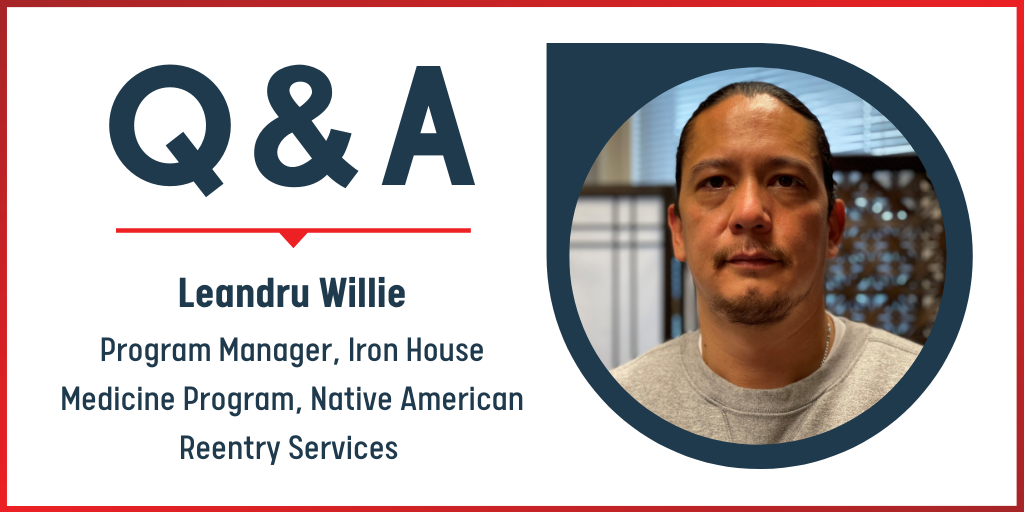After being incarcerated, you decided to join the Native American Reentry Services (NARS) HEAL for Reentry Program to support soon-to-be-released individuals. Why was advocating on behalf of those who are incarcerated important to you?
For me, I didn’t start with advocating on behalf of others. After being released in 2015, continuing my path of sobriety and being able to connect with other Natives on the same path was crucial to my success. In doing so, I was able to maintain my support system from inside and then back into the community. It was not until I earned my Associate of Arts degree at Pierce College that I realized how underrepresented Native communities are, which ultimately became my motivation. Advocating for those that are incarcerated is important for a couple of reasons. First, it is their right to have access to all spiritual and religious practices. Second, access and the ability to practice one’s spirituality can create change on a deeper level.
NARS provides religious and culturally responsive services—as an enrolled member of the Navajo Nation, how did access to such services support you in your journey?
While being active in my addiction(s), I was disconnected from my spirituality. However, NARS provided the means for me to get reconnected and stay connected. We may come from different tribes, but we are all Indigenous, and that creates some common ground for relationships to develop.
As a reentry advocate, you have encouraged people to utilize any positive values and habits developed while incarcerated. What were some positive values and/or habits that you acquired while being justice-involved that helped you successfully transition back into the community?
One of the most important lessons I learned is to take care of myself and to be selfish when it comes to my recovery. I am a firm believer that it is very difficult to help others if you do not take care of yourself. More importantly, formerly incarcerated individuals have unique life experiences that will benefit them in various ways. My experience while incarcerated equipped me with a plethora of skills, and having a connection to my community has given me opportunities to mentor others and grow professionally. Those that plan on entering the classroom will quickly realize they have more to offer than they thought, especially coming from a Native community.
Many people in prison have experienced trauma, mental disorders, and substance use issues. How can we shape our prisons, prison programs, and/or release processes to better serve those individuals?
The best way to serve those experiencing trauma, mental disorders, and substance issues is to work with those people, not for them. Creating individual and custom treatment plans is extremely important. Using one system for a variety of people is ineffective. We all have our differences and individual struggles that need to be addressed accordingly. Education is extremely important to me; creating space and time for those to further their education could be invaluable. This could lead an individual to make productive changes in their families and communities.
Like what you’ve read? Sign up to receive the monthly GAINS eNews!


